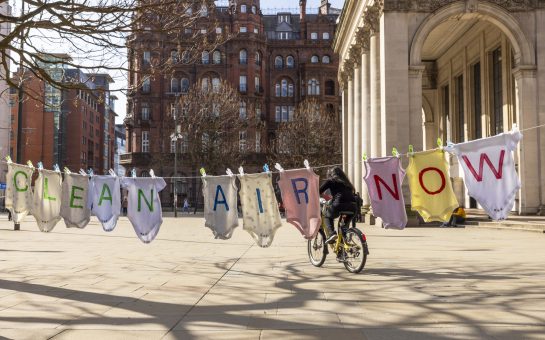Somewhere across Greater Manchester, there are 554 people waiting for an organ transplant.
But over the past four years, 173 residents from the area have died as a result of organ shortage, and the NHS wants us to get talking about it to reduce cases like this from happening.
Angela Ditchfield, Specialist Nurse at the NHS Hospital Trust in Blackburn, works as part of their Critical Care Team.
Approaching terminally ill patients and their relatives after their loved ones pass away, she faces the difficult task of co-ordinating transplants during a very sensitive time.
Talking to MM, she explained why National Transplant Week, which started on July 8 and is endorsing the ‘Pass It On’ campaign is so vital
“The message behind ‘Pass It On’ is clear – we need to pass on our end of life wishes,” she said.
“We all need to talk to loved ones about what we want to happen with our bodies after we die.
“It isn’t something you’d want to discuss but it is important that we do because nobody knows what’s going to happen at any point in our lives.”
Ms Ditchfield has made a very salient point.
While 95% of families agree to donation if a loved one has discussed their wishes and is registered on the Organ Donor Register, this drops to a shocking 46% when donation wishes aren’t known.
“National Transplant Week is very important as it not only celebrates people receiving transplants but raises the profile of organ donation and gets people talking about it,” she added.
The campaign aims to stress that not only do people need to join the NHS Organ Donation Register, but tell their families too.
Around Manchester there are various other promotions in a bid to encourage families to discuss just that.
ASDA are in support with the release of their limited edition ‘bag for life’ promoting the campaign being sold in stores up and down the country.
Manchester City Council is also pledging its support by becoming the biggest and third council in the country so far to join forces with the NHS Blood and Transplant Trust which manages organ donation.
They hope to see surges in the number of people signing up for the register which has enabled doctors to save the lives of 35 people this year through organ transplants.
Councillor Glynn Evans, Executive Member for Adults, Health and Wellbeing, said: “This is a ground-breaking move
“It’s also a significant step for public health in Manchester and a major milestone for the service since it transferred under local authority responsibility in April.
Radio slots on Manchester station KEY103 are also being used to drum up support for the cause, with other events going on in the city including a special visit from the KEY103 media bus, which is stopping by at ASDA Trafford Park on Thursday July 11, and Manchester Museum Car park on Friday July 12.
From 10am – 4pm on both days, you’ll be able to find out about everything you need to know about organ donation from the team in conjunction with Kidney4Life.
Also to be found at the Manchester Museum is work by 53-year-old kidney transplant patient Tracey Walshaw.
She hopes her graphic portrayal of the harrowing process which saved her life using mosaics will raise awareness about the importance of organ donation.
“The gift of a kidney and subsequently the potential for life and a future for recipients is one of life’s most remarkable gestures,” she said.
“No words can express the gratitude recipients feel towards donors and so through my art I have found the best way I know of honouring that gift.”
Recently, politicians in Wales have voted to become the only UK country with an opt-out organ donation system after the majority voted in favour of the bill.
Although there is no indication to suggest England following suit, Ms Ditchfield believes the publicity surrounding the campaign can only be a positive thing.
However, in a recent survey published by the NHSBT trust, when asked the question: ‘How do we make organ donation a normal part of UK culture?’ almost 50% of respondents opted for changing the consent system for organ donation either to presumed consent for organ donation unless a person has opted-out of the register, or face a mandated choice.
On average, individuals from black and minority ethnic communities wait longer than the rest of the population for organ transplants, despite the statistic that black and Asian people are more likely to need an organ transplant than the rest of the population.
This is despite the fact that only 4% of the 20% who registered their ethnicity when signing up to the Organ Donation Register were from BME communities.
Celebrities supporting the campaign include David Harewood and Kay Burley – whose messages of support can be found here (http://www.transplantweek.co.uk/celebrity_films/)
Sign up to the NHS Organ Donor Register at www.transplantweek.co.uk, call 0300 123 2323 or text DONATE to 62323.
Picture courtesy of TaihitianLime, with thanks.
For more on this story and many others, follow Mancunian Matters on Twitter and Facebook.



